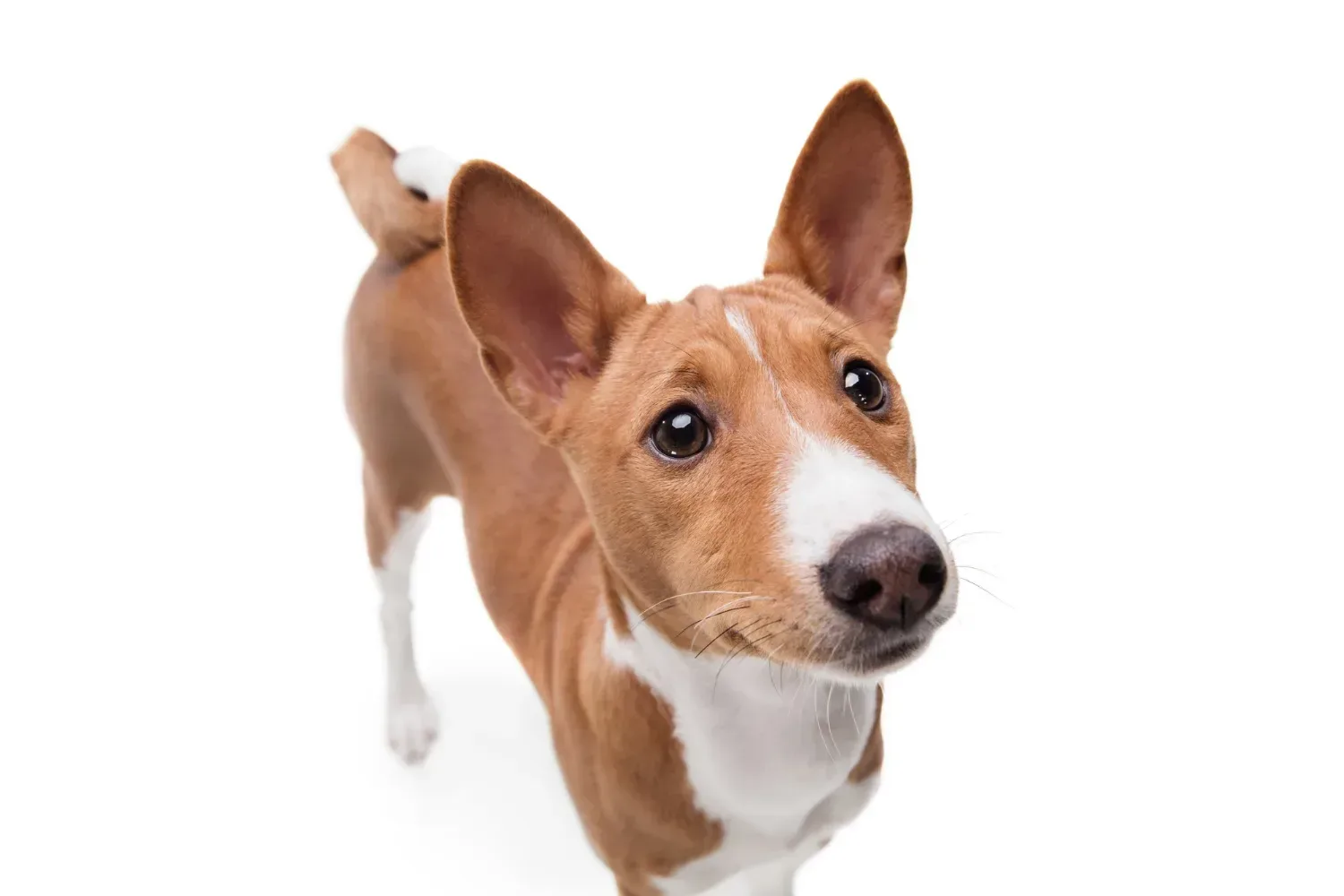
All about basenji dog breed
You may be wondering what the Basenji is, and why you should consider getting one. The Basenji dog breed is a Pariah type, with short, silky hair. In addition to being an intelligent guard dog, the Basenji has several traits that make it appealing to a variety of people. Read on to learn more about this regal dog breed. You may be wondering how to care for one of these adorable dogs.
Basenji is a Pariah-type dog
A Basenji is a medium-sized, smooth-coated breed with distinctive features. They have a wedge-shaped face with wrinkles on the forehead and are short-coupled and finely boned. Their graceful appearance gives the impression of a beautiful creature. Basenjis do not bark, but instead make a peculiar sound that resembles a yodel. This sound may have been adapted to the high humidity and equatorial summers.
You can find a Basenji in a rescue organization, if you’re looking to adopt a dog. Basenji rescue organizations usually disclose any health issues upfront. They usually provide fostering opportunities so prospective owners can see how the breed behaves. You can ask a Basenji’s foster family about any previous health conditions and their history. The Basenji Club of America’s Rescue Network can help you find a dog in need of a home.
The Basenji is a smart and independent dog that is difficult to train. They can be destructive, so early socialisation is essential. The Basenji does not bark, but it may chew on furniture and items in your home. Basenjis like to climb and chew. They should be socialised with other pets and children to prevent aggression. A Basenji is not suitable for families with young children, as they can be aggressive.
It has short, silky hair
The Basenji dog breed is a medium-sized African hunting dog with short, silky hair. These dogs require very little grooming and do not bark. They require infrequent brushing to keep their coats looking pristine. These dogs are active and alert and do not bark much. They make excellent companions for people who enjoy the quiet lifestyle. Despite their short hair, they are not prone to allergies, so you should feel confident bringing one into your home.
This dog breed is known to be independent and can be aloof, but is friendly and loving toward their owners. Because of its physical limitations, they cannot bark, but their keen sense of sight and hearing make them great watchdogs. Basenjis enjoy human company, but may not respond well to strangers. They should be kept away from outdoor pets such as cats and other pets. They are not aggressive toward strangers, but may still be aggressive to smaller animals.
It is intelligent
The Basenji dog breed is highly intelligent and can be considered a very smart dog. Their sly, mischievous nature is often the source of many owner stories. To keep your Basenji from destroying your home, you will have to be smarter and sneakier than the Basenji. It can be a challenge to train a dog with a mischievous attitude, but with patience, training can be fun.
While the Basenji is one of the most intelligent dog breeds on the market, they can be difficult to train. Although the breed is very intelligent and curious, they do require consistent exercise and mental stimulation to stay happy. Unlike some breeds, the Basenji is also a chewer, but this is less of a problem for owners. Basenjis do not bark unless they feel threatened, but they can yodel.
The Basenji dog breed is intelligent, but its stubbornness may prevent it from being a good pet for young children. They do well with other pets, but you will need to ensure that your child is old enough to handle them. Even though the Basenji can be independent, they are also very loving and friendly to children. If they have the right upbringing, the Basenji is a great watchdog. A little training will go a long way towards making your dog a well-behaved pet.
It is a guard dog
Although the Basenji is not known for its guarding abilities, the breed does make a loyal and devoted companion. If provoked, a Basenji may even engage in physical combat to defend its master. This breed is highly active and alert, and should be walked or run on a daily basis for optimal exercise. If a Basenji has an unsatisfactory workout routine, it may develop destructive behaviors.
The Basenji originated in the Congo region of West Africa. It was a prized hunting dog and was given to Egyptian pharaohs as a gift. Despite the fact that the breed does not bark, it has a distinct sound when it is excited and yodels instead of barking. Basenjis are also extremely intelligent and are very gentle with children. They are very friendly and have a great deal of stamina.
Basenjis are highly intelligent, but their stubborn streak may make them difficult to train. They may know the commands to be obeyed, but may not perform them. While this may seem like a big problem, the Basenji uses its intelligence to gain attention and get what he wants. Once a Basenji has earned a place in your heart, he will not hesitate to guard it and protect you.
It is not a barker
You might have heard that the Basenji is not a barker, but that is simply not true. Although this breed is not known for barking, it does make weird noises to alert their owners to things they shouldn’t be hearing. That said, the basenji is not a barker, and they can alert you to things around the house, if they feel threatened. You need to be alert when you open the door, so that you don’t accidentally let them out.
While this isn’t a problem in all cases, some Basenjis can be very loud. This can occur because of several reasons, including playfulness, territorial risks, and undersocialisation. The good news is that you can prevent this behaviour by socialising your Basenji gradually. By rewarding good behaviour and gradually introducing it to other dogs, you can reduce your Basenji’s barking behavior. And you can make sure that your new companion doesn’t become destructive or depressed if they start barking excessively.
It sheds little to no hair
The Basenji is one of the few dog breeds that shed little to no hair. They’re easy to groom, too. Unlike other breeds, they don’t shed too much hair and don’t produce a lot of allergens, making them a great choice for those who want a dog with minimal maintenance. To keep their coat in good condition, Basenjis require weekly brushing to remove dead hairs and spread skin oils throughout the coat.
The Basenji is a small hunting dog that is known as the “barkless dog.” Their short coat and curly tails make them easy to identify, and they don’t shed much. Unlike other breeds, they won’t smell, and they only need to be bathed if they get dirty. They’re also quite active, making them excellent watchdogs. While this breed may not shed a lot of hair, they’re still known for being independent and intelligent.
People who suffer from allergies should be wary of dogs that shed little to no hair. While these dogs may not be hypoallergenic, they do provide a wealth of free perks. Dogs with minimal shedding are a great choice for people who hate sweeping dog hair. While it doesn’t irritate the skin, Basenjis have a very low odor and require little grooming.
It is good with children
The Basenji dog breed is good with children, as it is a devoted and loving pet. Although the breed is often aloof with strangers, it is surprisingly good with kids. Though this breed is bull-headed, it is very gentle and tolerant of children. This breed is great with older kids and active family members. Basenjis should be socialized from an early age, and owners should spend plenty of time teaching their new pet how to behave around children. As a rule, it is not a good idea to let children play with your dog unsupervised.
While this breed is great with kids, it is not suited for young children. Basenjis are high-spirited and energetic and need constant leadership from their owner. If left unsupervised, they can chew things in the home or climb trees. They are very active and can’t be left alone for long, so parents should supervise them carefully whenever they are outdoors. Otherwise, they could cause a lot of trouble. Despite being a great companion for children, a Basenji shouldn’t be trusted alone with children.
It can be a digger
Basenji dogs are incredibly athletic and have an innate curiosity. While their high energy levels make them excellent escape artists, they are also excellent diggers and climbers. You’ll need to provide your Basenji with ample exercise on a daily basis. They need at least two 30-minute walks and plenty of off-leash running. Taking your Basenji for a walk will keep them from getting bored and causing a mess.
The Basenji is known for not barking, but instead makes a yodel sound. While it doesn’t bark, this breed of dog does make other sounds, including growls, crows, and howls. In fact, it’s not uncommon to hear a Basenji making a noise while out hunting. However, this is not a reason to be alarmed or afraid.
The Basenji dog breed has a short coat and is a good choice for someone looking for a dog with a short coat and a low back. The Basenji dog breed has distinctive almond-shaped eyes and a deeply wrinkled brow. Its ears are pricked and its profile is reminiscent of ancient Egyptian dog statues. If you’re looking for an energetic dog that is prone to digging, you may want to consider the Basenji.


